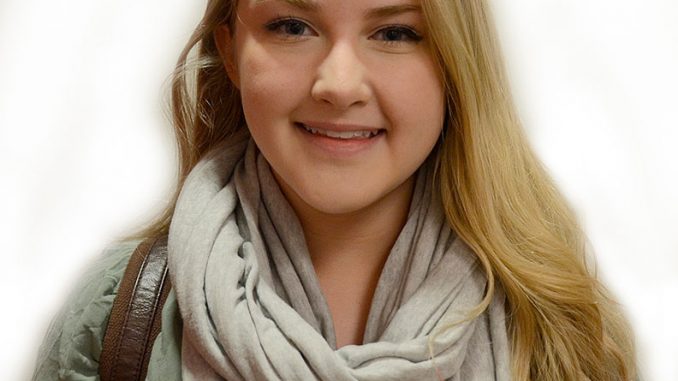
 I wasn’t deprived of Hollywood movies based on the college experience growing up. Seeing John Belushi yell “toga” or Jonah Hill say, “Ask me about my wiener” never failed to make me laugh.
I wasn’t deprived of Hollywood movies based on the college experience growing up. Seeing John Belushi yell “toga” or Jonah Hill say, “Ask me about my wiener” never failed to make me laugh.
But when I was asked to be in a threesome last semester, I wasn’t laughing anymore. In fact, I have to admit it kind of threw me.
The hopelessly awkward freshman in movies experiencing their first “glorious” threesome is comical on screen. But the thought of me being in that situation was actually unnerving. There are so many questions that dimly-lit romantic comedy scenes don’t explain – I mean, what do I do with my hands?
Watching these types of movies always made me think that college is primarily a place to learn, accompanied by a booze-filled, sex-driven, around-the-clock party. After experiencing my first semester, I’m starting to think I didn’t give those movies much credit – it’s actually wilder than I assumed in many circumstances.
When it comes to being in college, it is up to each of us to set our own sexual rules.
The college environment is often described as a breeding ground for sexual curiosity. With the exposure to new things, it can be easy to get carried away and lose sight of who we once were.
Once students graduate high school, leave home and move to college, more likely than not they find themselves thinking about things like threesomes, exploring the same sex or how sexual they want to be. There are three main things a person inherits when they begin college: an increase in freedom, less judgment by peers and a new pool of people in their social circle.
But it’s more than just the change of environment. There’s also the newly-established recording of all the decisions we make.
On the weekends, my friends and I like to go out, dance, meet new people – specifically guys, for those of us who are single – and we aren’t the only ones. By the third week, I regularly saw couples aggressively making out in public on weekends. By my fourth week here, my friend had me scrolling through pictures on the “Temple Makeouts” Twitter account, dedicated solely to posting photos taken by fellow partiers of unsuspecting couples going at it. It was clear by the amount of PDA in Main Campus’ nightlife scene that the sexual culture of my peers had drastically changed since my time at East Brunswick High School.
It’s clear that college students celebrate this type of public display of affection, posting it on social media or high-fiving their friends if they find themselves on a page like “Temple Makeouts” after a blurry night. It can be comical, and I have to admit to a guilty pleasure of looking through the page’s pictures on Sunday afternoons, but I would be mortified if I ever found myself on “Temple Makeouts.”
Just like setting our personal boundaries, we should consider those of other people. Just because someone is engaging in PDA doesn’t mean they’ve given their permission to be photographed and have the moment immortalized. Maybe that seems contradictory to the party atmosphere, but it’s just another part of those expectations now left up to us to determine.
Since we no longer have as much pressure from our old peers and families, it’s easy to forget our sexual boundaries from high school in the excitement of the new ones we set ourselves in college. College is all about exploring. Sexuality is a big aspect of a person’s life, and exploring it is an inevitable part of becoming your own person – we shouldn’t let social media shaming, calling out or embellishing tarnish that in any way.
Life doesn’t play out like a movie when in college. Even if you aren’t asked to be in a threesome, there are a number of ways your boundaries will be tested, whether face-to-face or over Internet forums. Approaching these situations can be emotionally difficult, but it’s most important to know you’re the one who should be in control of your identity, online and in person.
Kate Reilly can be reached at kate.reilly@temple.edu.



Be the first to comment